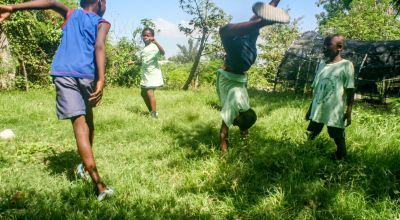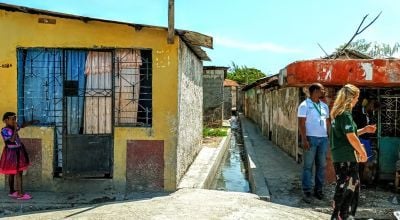
Read our 2023 annual report

Knowledge Hub
Concern and Irish Aid are working to support the local economy in rural Haiti, and reverse decades of neglect, interference, and mismanagement. At the forefront of this effort are local Haitian organisations.
Paradise?
The road to Savanette is stunningly beautiful. Actually, the road itself is terrible, but the countryside through which it winds its laborious way is postcard pretty. Verdant valleys, wooded hillsides, babbling brooks, and an abundance of avocado, mango, lemon, and banana trees. It’s the classic vision of a Caribbean island paradise, but probably not the kind of image you’d have in mind for Haiti, if you spend much time looking at the news these days.
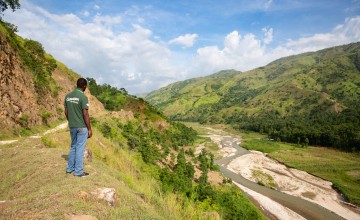
Savanette is no more than 50 miles as the crow flies from downtown Port-au-Prince. But in many respects, it’s a world away. The ambience is laid-back and peaceful, and we’re close enough to the border with Dominican Republic that most people here speak Spanish, in addition to Creole and French.
There is one thing, however, that people living in this part of Haiti have in common with most of their urban counterparts. Poverty.
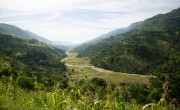
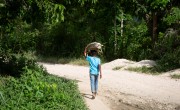
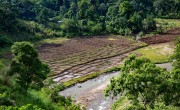
"Life is not good"
“If God puts someone on my path to help me, I will leave this country. At least I could work and save some money for my funeral.” This startling declaration comes from Jaques Delouis, a slim wiry man in his fifties, who looks older than his years. He’s sitting with his wife, Rosemaine, outside a modest wooden house on a hillside surrounded by trees and vegetation, accessible only by a steep, narrow path. For now, this is their home.
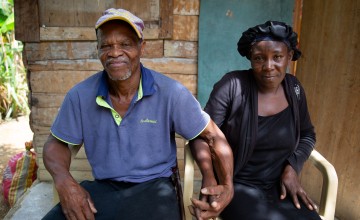
“As long as my husband is alive and can work, we can live here"
We had a small piece of land where we previously lived,” explains Rosemaine. “But we sold that and used the money for school fees for our kids and to rent a house in the town.” Jaques manages a small mango plantation for a local businessman, who offered the family this house along with the job. “As long as my husband is alive and can work, we can live here. But if he dies, after three months, I will have to leave the house,” she says.
The margins are tight, and life is tough. “We are struggling,” Jaques says. “Life is not good. It was worse before I got this job, but still I can barely manage to feed my family. Right now, there is no opportunity to do any better.” He tells us that his daughter helped him apply for a passport but adds that it’s of no real use because he can’t afford to leave.
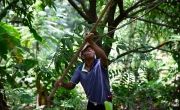
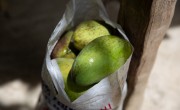

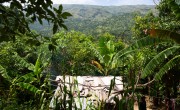
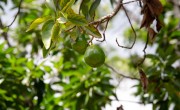
But why?
Jaques and Rosemaine’s story is not unique. Many people, especially the younger generation, leave Savanette and either head for the city or cross the Dominican border in search of work. Neither option holds much hope, but they say it’s better than staying here.
The obvious question is why? Haiti is generally fertile — pretty much everything grows easily in this part of the country, even coffee. But there are problems.
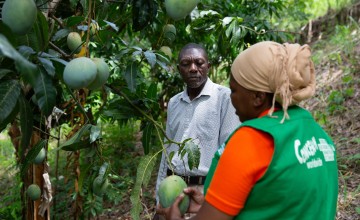
“When farmers are lucky enough to harvest beans, mangoes, avocados, or corn, much of it goes to waste.” Those are the words of Olive Province, who is what’s known as a Casec, a community leader in this section of Centre Department. He’s also a farmer with a decent amount of usable land, producing enough to feed his family and some extra to sell locally. But the road into Port-au-Prince is ruled by armed gangs who hijack trucks and demand extortionate “taxes”, meaning Olive’s biggest potential market is beyond his reach. Even if that were not the case, the high price of fuel and the condition of the road would make it difficult to turn a profit.
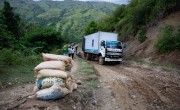
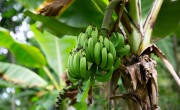
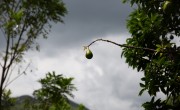
And there are other barriers to success. As recently as the 1980s, Haiti was basically self-sufficient in food production, but a series of events in the intervening years laid waste to the agricultural sector and it has never recovered. Cheap imports, political dysfunction, galloping inflation, and lack of investment were among the factors that conspired to crush the rural economy. Cooperatives, which had put economic bargaining power into the hands of small farmers, fell apart. Today, more than half of what Haitians eat is imported.
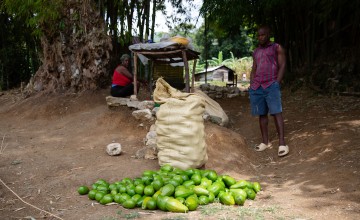
Olive says the situation in the countryside is dire. “Farmers can’t afford to buy seeds or fertiliser. We don’t have the money to invest in improving our land. We need agricultural technicians to train farmers so that they can change their archaic practices.” All around him stand mature Francique mango trees, bowing under the weight of ripening fruit. “We don’t do anything with them, except eat what we can and share some with the neighbours. There’s nowhere to sell them.”
Also growing in relative abundance here are coffee beans, which by all accounts are of good quality and particularly flavoursome when roasted. Again, the lack of coordinated production and the absence of a functioning value chain means that these too are of little value.
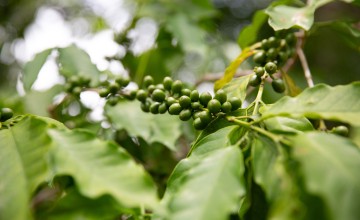
Irish Aid
Yvener José heads up a team at Concern Worldwide that specialises in Livelihoods, the term used to describe how someone generates food and income for themselves and their dependents. The five-year Irish Aid programme, called Solisyon Avni Miyo (Solutions towards a better future) is developing a series of supports for the people of Savanette and the surrounding area, specifically aimed at addressing some of the barriers to success.
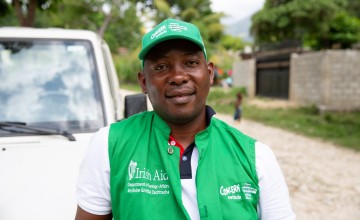
“We’re looking at developing solutions on a number of different fronts, working in partnership with local organisations.” Yvener explains. “The first priority is to help farmers improve their production methods and figure out which crops have the most potential value. Black bean production is a sector that is very interesting, but also corn, millet, bananas, peanuts, and coffee.”
Yvener says that securing access to agricultural inputs like improved or hybrid seeds is a key part of the plan, alongside the introduction of modern climate-smart growing techniques, pest control, and post-harvest management. “We already have relationships with vendors and traders through a separate project and we want to help develop linkages between them and these farmers. One of our partners is particularly focused on studying potential value chains.”
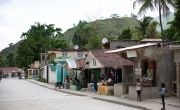
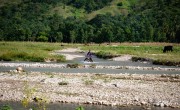

Haiti sits slap-bang in the centre of Hurricane Alley, the band of warm water stretching from West Africa to Central America that generates some of the planet’s most violent storms. Here in Savanette, the Fer à Cheval (Horseshoe) river regularly bursts its banks, causing destruction and sometimes loss of life. Meanwhile heavy rains coursing down deforested hillsides can wash away both crops and precious topsoil. “We’ll also be working with local authorities and farmers to help them develop disaster risk reduction (DRR) techniques,” according to Yvener.

It's time for change
The Irish Aid programme also includes elements of social cohesion, protection and social accountability for vulnerable members of the community. “The name translates to ‘Solutions for a brighter future’ and that’s exactly what we hope to achieve,” Yvener says. “People here have suffered from isolation and neglect for too long. It’s time for change.”
For the Delouis family and thousands like them, that change can’t come soon enough.
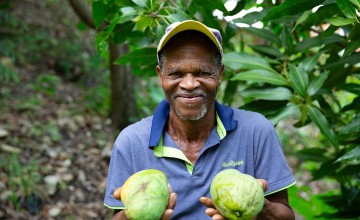
In partnership with
Our impact in 2023
people reached through our emergency response
people reached through our health interventions
people reached through our livelihoods programmes



